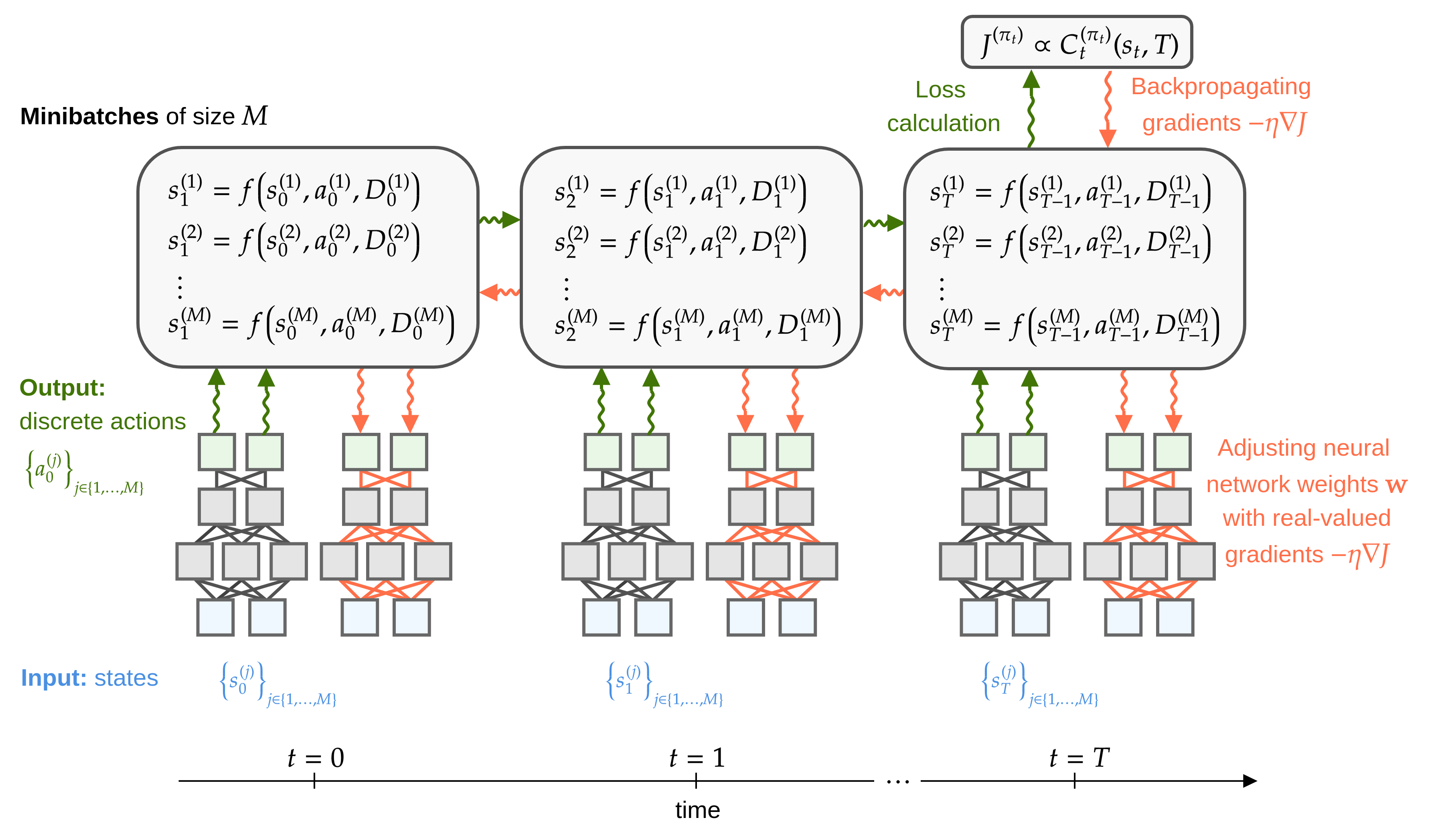This archive is distributed in association with the INFORMS Journal on Computing under the MIT License.
The software in this repository is a snapshot of the software that was used in the research reported on in the paper Control of Dual-Sourcing Inventory Systems using Recurrent Neural Networks by Lucas Böttcher, Thomas Asikis, and Ioannis Fragkos.
To cite the contents of this repository, please cite both the paper and this repository, using their respective DOIs.
https://doi.org/10.1287/ijoc.2022.0136
https://doi.org/10.1287/ijoc.2022.0136.cd
Below is the BibTex for citing this snapshot of the respoitory.
@article{bottcher2023control,
author = {B{\"o}ttcher, Lucas and Asikis, Thomas and Fragkos, Ioannis},
publisher = {INFORMS Journal on Computing},
title = {Control of Dual-Sourcing Inventory Systems using Recurrent Neural Networks v2022.0136},
year = {2023},
doi = {10.1287/ijoc.2022.0136.cd},
note = {Available for download at \url{https://github.com/INFORMSJoC/2022.0136}},
}
This project provides implementations of neural networks that control single-sourcing dynamics and dual-sourcing dynamics, with or without empirical demand data.
We summarize the main model parameters below.
| parameter | type | description |
|---|---|---|
ce |
int | expedited order cost (per unit) |
cr |
int | regular order cost (per unit) |
fe |
int | fixed expedited order cost (per unit) |
fr |
int | fixed regular order cost (per unit) |
h |
int | holding cost (per unit) |
b |
int | shortage cost (per unit) |
le |
int | expedited order lead time |
lr |
int | regular order lead time |
T |
int | number of simulation periods |
The figure below shows a schematic of solving discrete-time stochastic control problems with recurrent neural networks. More information on implementation details are provided in our paper.
The data/cdi_nnc/ directory comprises data on dual sourcing costs for both capped dual-index (CDI) and neural-network policies. It also includes supplementary data on neural-network training runtimes and various data visualization scripts.
In the data/MSOM_data/ directory, we store the empirical demand data obtained from Manary, Matthew P., and Sean P. Willems. "Data set: 187 weeks of customer forecasts and orders for microprocessors from intel corporation." Manufacturing & Service Operations Management 24.1 (2022): 682-689.
The code/sourcing_models/ directory contains various implementations of dual sourcing heuristics, including single index, dual index, capped dual index, and tailored base surge. The file code/sourcing_models/recursion_numba_state_output.py offers a dynamic program solution for the dual-sourcing problem with fixed costs. To accelerate the dynamic programming iterations, we utilize the high-performance Python compiler Numba.
To execute the program recursion_numba_state_output.py within the code/sourcing_models/ directory, use the following command:
python recursion_numba_state_output.py recursion_input_files/ds1_lr=2_b=95_h=5_u04.inHere, ds1_lr=2_b=95_h=5_u04.in refers to a file that contains input parameters for the dynamic program.
The code/sourcing_models/trained_neural_nets directory provides trained neural networks that can be employed for transfer-learning tasks.
In the code/neural_control/ directory, you can find different neural-network controllers and inventory dynamics implementations using PyTorch. Specifically, long short-term memory and transformer implementations are accessible under code/neural_control/experiments.
The code/notebooks/ directory contains a collection of Jupyter notebooks designed for conducting numerical experiments related to controlling single-sourcing dynamics and dual-sourcing dynamics, with or without fixed costs. These notebooks encompass various neural-network controllers and also include comparisons with capped dual-index policies.
For an optimization example utilizing empirical demand data, refer to the code/MSOM_data/ directory.
This code is being developed on an on-going basis at the author's Gitlab site.

